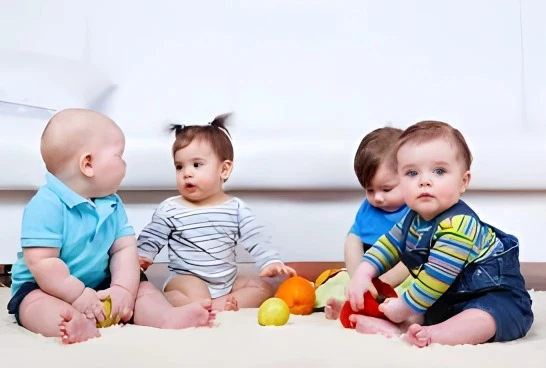Boulder: Early signs of intelligence in babies—like babbling, focus, and interest in new toys—may offer a window into future cognitive abilities, according to new research from the University of Colorado Boulder. The study, published in PNAS, shows that cognitive tests conducted on 7-month-old infants could predict intelligence scores 30 years later.
The researchers analyzed data from 1,098 twins enrolled in the Colorado Longitudinal Twin Study, launched in 1985. These infants were tested for behaviors like vocalization, task focus, and preference for new toys. Decades later, follow-up cognitive assessments revealed a striking connection: up to 13% of the variance in adult cognitive scores could be traced back to infancy.
Lead author Dr. Daniel Gustavson emphasized that this doesn’t mean cognitive ability is set in stone by seven months but that early-life signals offer valuable clues. “A simple test in infancy can help predict the results of a complex cognitive test taken 30 years later,” he said.
Using twin data, researchers distinguished between the effects of genetics and environment. As expected, genes played a significant role. By age 7, genetic factors explained about 50% of the variation in adult cognitive performance. However, environmental influences in the first year of life accounted for about 10%, a significant finding.
The older the twins got, the more influence genes had and the less impact the environment made, highlighting the lasting importance of early-life conditions. “This suggests that even the pre-preschool environment matters,” Gustavson added.
The study also used polygenic scores, which combine thousands of genetic markers to estimate traits like intelligence. Based on DNA samples, these scores closely matched the twins’ long-term cognitive performance. This supports the value of both genetic and behavioral data in understanding lifelong brain development.
Senior author Chandra Reynolds, who also studies dementia, noted the broader impact: “Cognitive aging is a lifelong process. Strong early foundations may help maintain brain function into old age.”
The findings reinforce the idea that early childhood is a critical window for development and intervention. The authors call for more attention to early environments—not just genetics—to boost lifelong brain health.








